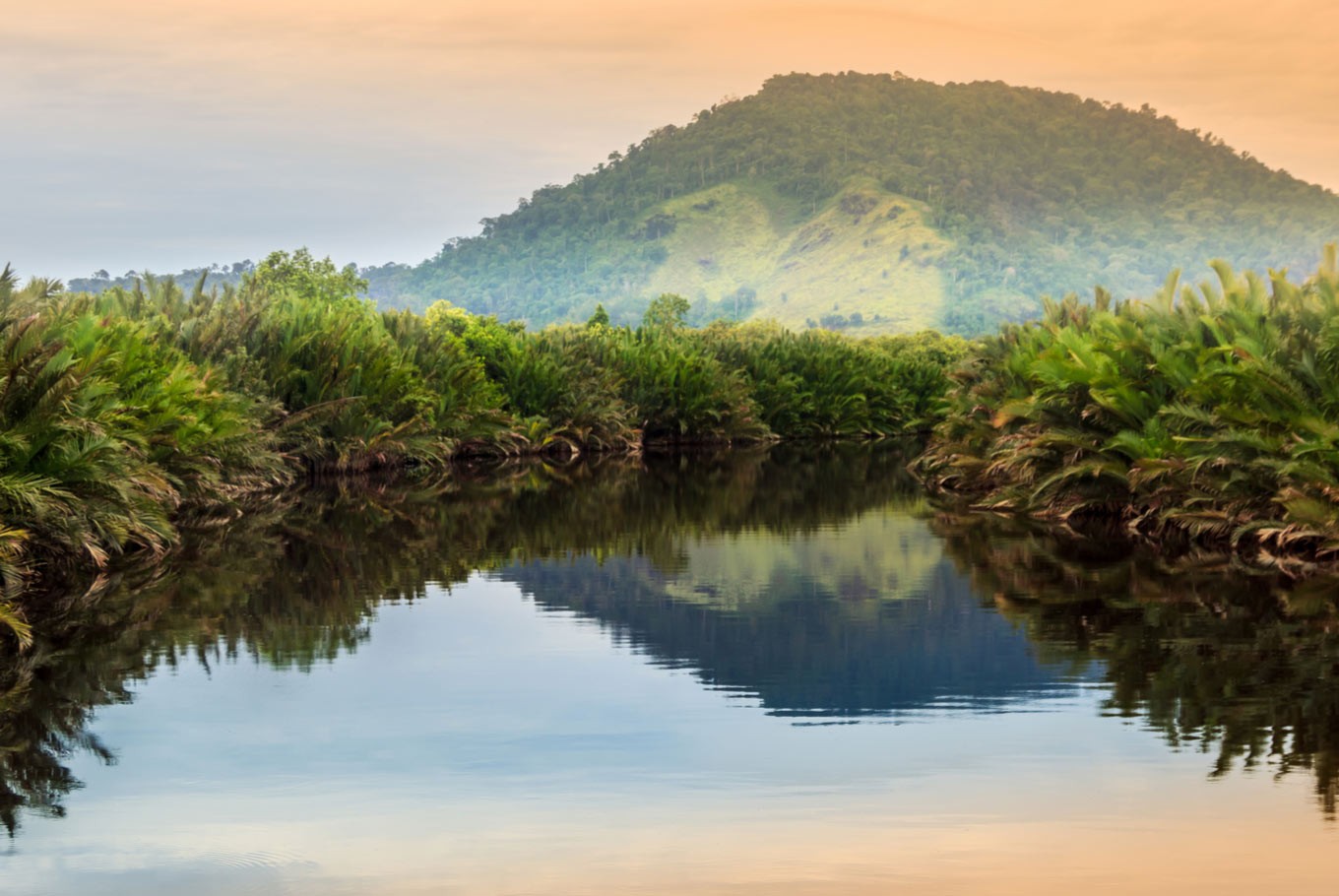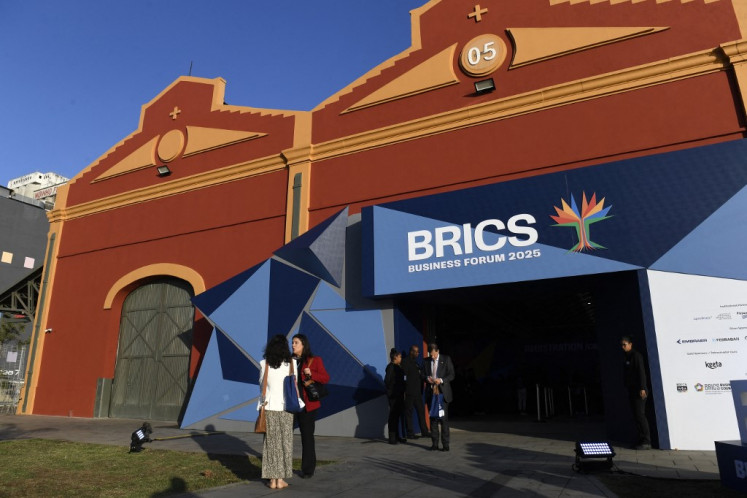Popular Reads
Top Results
Can't find what you're looking for?
View all search resultsPopular Reads
Top Results
Can't find what you're looking for?
View all search resultsREDD+ in partnership has greater reach
Putting aside whether the grant money has been disbursed or not, Indonesia has exercised a number of REDD+ activities that reduced carbon emissions in the forestry and land-use sector.
Change text size
Gift Premium Articles
to Anyone
The announcement came from out of the blue.
On May 26, 2010, Indonesia and Norway signed a Letter of Intent (LoI) for Cooperation on reducing greenhouse gas emissions from deforestation and forest degradation (REDD+). The ceremony took place in Oslo and was attended by then-president Susilo Bambang Yudhoyono (SBY) and prime minister Jens Stoltenberg. But 11 years later, on Sept. 10, seemingly out of nowhere, Indonesia announced a unilateral decision to enact Article XIII (b_ of the LoI: “This Letter of Intent may be terminated at any time by either of the Parties, by written notification, through diplomatic channels.”
The Foreign Ministry at Pejambon Park, Central Jakarta, delivered a diplomatic note to the Royal Norwegian Embassy at Rajawali Tower in Kuningan, South Jakarta, to notify that Indonesia had decided to terminate the LoI.
Indonesia’s main reason was that it was seeing a “lack of concrete progress” in the implementation of the Norwegian government's obligation to deliver the results-based payment for Indonesia’s achievement in reducing 11.2 million CO2 equivalent (CO2eq) of greenhouse gas emissions in 2016/2017, which has been verified by an international organization.
The core of the LoI is Norway’s agreement to deliver a cash grant of up to US$1 billion to Indonesia if Indonesia succeeds in reducing by verifiable means carbon emissions from deforestation and forest degradation.
Arriving at the LoI took a marathon of negotiations in Oslo on May 12-13, 2010. Indonesia’s lead negotiator was Agus Purnomo, the president’s climate advisor. His counterpart was Hans Brattskar, director of the Norwegian government’s Climate and Forestry Initiative. Concessions were traded off in the negotiations departing from an LoI draft the Indonesian team brought.
The Norwegian side requested an additional commitment. Agus, mandated by president SBY, revealed that Indonesia would implement a two-year moratorium on issuing permits for the use of primary forests and peatlands.
Norway accepted the proposal. It also agreed to explicitly write the $1 billion grant into the LoI's text. Originally, the Norwegian team had only agreed to the amount verbally as it feared its parliament would question it.
If the amount was not put in writing, Agus argued, Indonesia’s House of Representatives would question why it gave a commitment to something with no clear benefit. (Pros-Cons Policy of Moratorium on Forests and Peatlands 2012, Agus Purnomo, KPG).
Ten years on, on May 21, 2020, Environment and Forestry Minister Siti Nurbaya said Indonesia was to receive a results-based payment (RBP) of $56 million as the first REDD+ grant from Norway.
Based on a verification process the Norwegian government approved, the emissions reduction Indonesia achieved in the 2016-2017 period amounted to 11.2 million tons of CO2eq. The measuring, reporting and verifying (MVR) report was the basis of the RBP at $5 for 1 ton of CO2eq. Thus, Indonesia would receive $56 million.
Initially, Indonesia would receive the money in installments starting from June 2020. But until September this year, no amount has been disbursed. And so, the diplomatic note was delivered.
Putting aside whether the grant money has been disbursed or not, Indonesia has exercised a number of REDD+ activities that reduced carbon emissions in the forestry and land-use sector.
First, the moratorium on new permits for the use of primary forest and peatlands, which has been extended every two years since it was started with Presidential Instruction No. 10/2011.
Second, a 2013 ruling of the Constitutional Court amending the 1999 Forestry Act to recognize that “customary forests are forests located in the areas of custom-based communities”, a decision that fortifies the legal standing of custom-based communities.
Upholding the rights of custom-based communities in forest zones is a “plus” activity in the REDD+ scheme. Other “plus” activities are biodiversity protection and keeping forests with high conservation value (HCV).
Third, the establishment of the Climate Change Directorate General as the national focal point of the United Nations Framework Convention on Climate Change.
Fourth, determining the emissions reduction target at 26 percent by 2030 and 41 percent with international cooperation in Indonesia’s Nationally Determined Contribution, the country’s climate action plan.
Nevertheless, Indonesia still has a slew of challenges to face. One is to sustain the level of deforestation reduction when the COVID-19 pandemic is making farming communities change peatlands to money-earning oil palm holdings.
Another concern is a “plus” activity in the REDD+ mechanism: continuing adherence to the free, prior and informed concept (FPIC) in favor of forest-based communities.
The FPIC principle is a human rights standard that allows for local/custom-based communities to self-determination to their land and resources.
Even without an LoI benefit, Indonesia has moved. However, to make greater strides to reach a farther destination, Indonesia should make that journey with partners.
If you want to run fast, run alone. If you want to go far, go in partnership, as an African proverb goes.
***
The writer is a senior journalist. He participated in Al Gore’s climate leadership training in Jakarta in January 2011.










